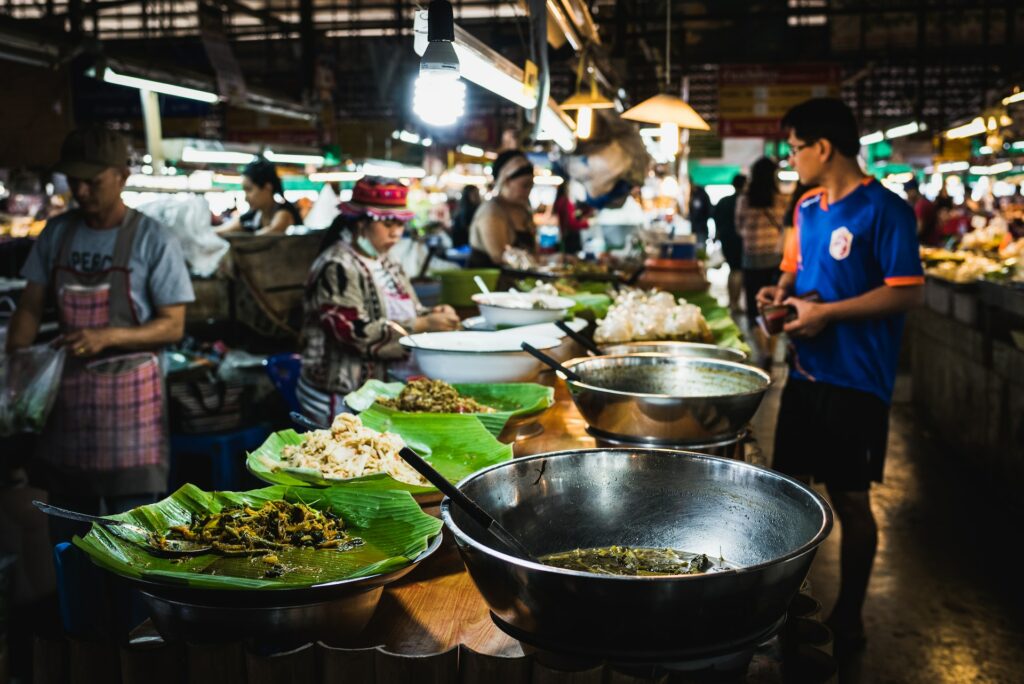Location: Chiang Mai, Thailand
Case study conducted by: Piyapong Boossabong
Main contact point in the case: Piyapong Boossabong (Head of the Chiang Mai City Lab, School of Public Policy, Chiang Mai University, email: piyapong.b@cmu.ac.th)
Time span of case: Since 2021 (still active)
Green SDGs focused on: SDG 11 (Sustainable Cities and Communities) and SDG 12 (Responsible Consumption and Production)
Partners in the case: Suthep Municipality, Chiang Mai University (Faculty of Agricultural Science & School of Public Policy), the National Innovation Agency (the regional office), the Office of the National Economic and Social Development Council, UNDP, Chiang Mai Food Council, the composting machine owner (a startup), community leaders, people struggling with homelessness, migrant workers, ethnic minorities, and general active citizens
Data sources in case analysis: Interviews, documents, observations, mini-survey

In GOGREEN, we define the green SDGs as the following SDGs: SDG 6, SDG 7, SDG 11, SDG 12, SDG 13, SDG 14, SDG 15
The case started during the peak situation of COVID-19 in 2021. The lockdown led to a food shortage and a dramatic increase in food prices in the city of Chiang Mai. The situation was even worse when the central fresh food market was found as the cluster of the outbreak. People here have realized that the existing food system is very fragile as it depends too much on food transportation from a distance (mainly from China). The disruption of food supply chains at that time broke the imagination of the people that food in the city was always abundant. This was particularly the case for fresh vegetables. This problem affected everyone with a severe impact on the disadvantaged groups, including people struggling with homelessness and unemployed migrants.
With that, the think tank unit called Chiang Mai City Lab within the School of Public Policy at Chiang Mai University decided to organize the public forum aiming to connect the dots for boosting mutual support among stakeholders in the city in the face of the crisis as merely food donation was insufficient to address the problem. The initiative was supported by the Office of the National Economic and Social Development Council under its program with UNDP, known as the Thailand Policy Lab. A hundred people from different backgrounds attended the forum. Some were representatives of public, private, educational, and civil society organizations, while the rest were active citizens and victims. They all thought the city could not wait for help from the central government and the rigid hierarchical bureaucratic structure within the weak democratic regime.
In the forum, a homeless person shared in front of everyone his fears and hopes. The forum then turned to be a platform for resource sharing when the mayor raised his hand and proposed that he could provide a piece of vacant land covering 70 acres for the people to grow food there. After that, a startup that owns the composting machine agreed to install its product in that area, and it can help the municipality to compost the organic waste of 500 kilograms per day. Apart from that, the Chiang Mai Food Council stepped in with a promise that it would take the idea into action by ensuring that everyone can take part. As this initiative would take time as food could not be grown overnight, in the meantime, they agreed to connect supermarkets to make the best use of their leftover foods (nearly expired foods) by redistributing them to the people in need.
A few weeks after the forum, the abovementioned land has been used as a space of possibilities framed by the bio-circular-green economy approach. The financial resource for the operation (seeding money) was gained from the regional office of the National Innovation Agency (Public Organization). The municipality invested in building the infrastructure for the machine installation and absorbed the cost of electricity. The composting machine owner understood that the municipality could not afford to pay for the machine at that point, so he allowed the municipality to use it for the whole year as a way to test the prototype. Chiang Mai Food Council has become the main actor that makes the actual change by working with community leaders, people struggling with homelessness, migrant workers, ethnic minorities, and laypeople there. In parallel, Chiang Mai City Lab has played the role of the coordinator of this collaborative effort, facilitating co-creative activities and helping manage the pool resources.
The project is still active. The municipality can reduce waste management costs by roughly 8,000 USD a year. The fertilizer from the composting process can be produced about 500 kilograms every day. 5-10 persons struggling with homelessness and migrants can generate income from daily work depending on their availability. More than ten partners have still played a collaborative role in this project by sharing resources either in kind or in cash. The food bank has been organized based on 30% of the products, while 70% of these safer products (than the general markets) have been sold in the local market, aiming to contribute to the development of the fresh, fair, friendly local food system.
This website uses strictly-necessary cookies. To read more about WordPress cookies, click here. Please click on the ‘Accept’ button to continue on to the GOGREEN Project site.